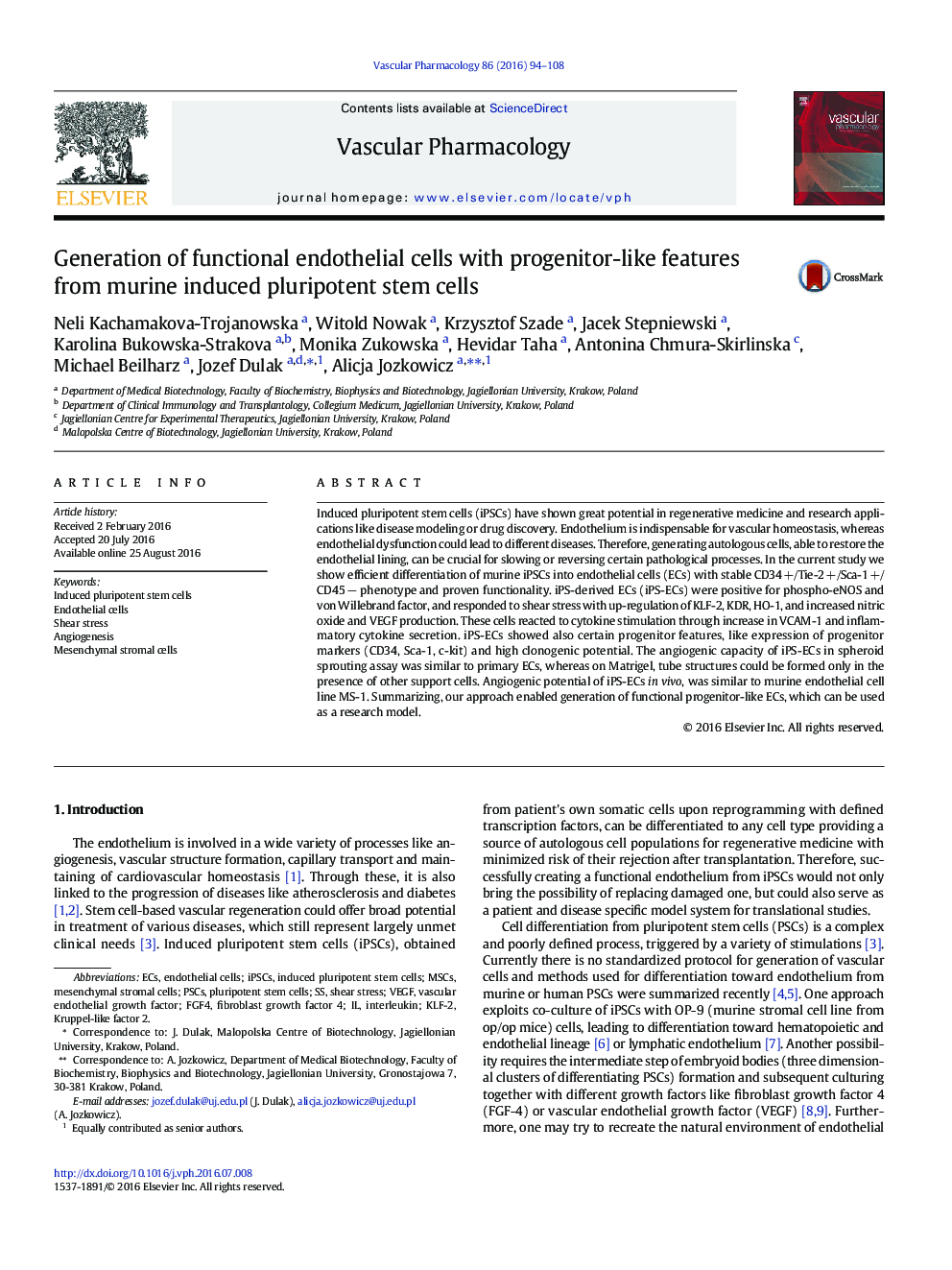| Article ID | Journal | Published Year | Pages | File Type |
|---|---|---|---|---|
| 5558977 | Vascular Pharmacology | 2016 | 15 Pages |
Induced pluripotent stem cells (iPSCs) have shown great potential in regenerative medicine and research applications like disease modeling or drug discovery. Endothelium is indispensable for vascular homeostasis, whereas endothelial dysfunction could lead to different diseases. Therefore, generating autologous cells, able to restore the endothelial lining, can be crucial for slowing or reversing certain pathological processes. In the current study we show efficient differentiation of murine iPSCs into endothelial cells (ECs) with stable CD34Â +/Tie-2Â +/Sca-1Â +/CD45Â â phenotype and proven functionality. iPS-derived ECs (iPS-ECs) were positive for phospho-eNOS and von Willebrand factor, and responded to shear stress with up-regulation of KLF-2, KDR, HO-1, and increased nitric oxide and VEGF production. These cells reacted to cytokine stimulation through increase in VCAM-1 and inflammatory cytokine secretion. iPS-ECs showed also certain progenitor features, like expression of progenitor markers (CD34, Sca-1, c-kit) and high clonogenic potential. The angiogenic capacity of iPS-ECs in spheroid sprouting assay was similar to primary ECs, whereas on Matrigel, tube structures could be formed only in the presence of other support cells. Angiogenic potential of iPS-ECs in vivo, was similar to murine endothelial cell line MS-1. Summarizing, our approach enabled generation of functional progenitor-like ECs, which can be used as a research model.
Graphical abstractDownload high-res image (128KB)Download full-size image
